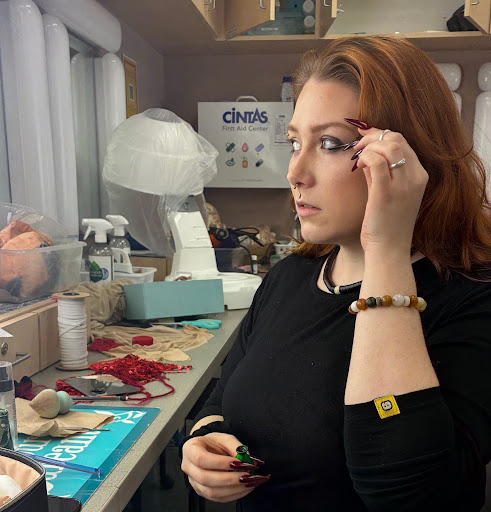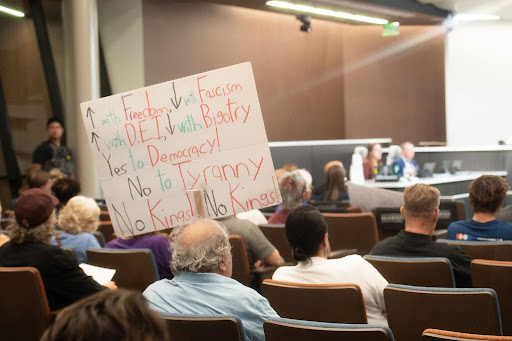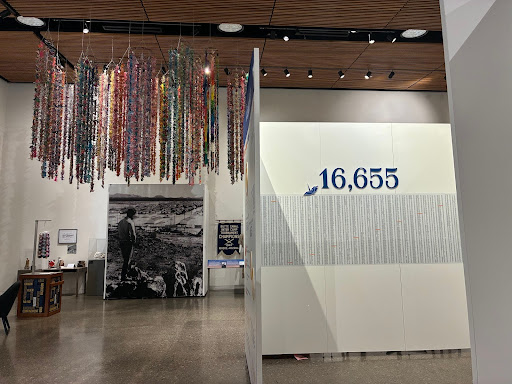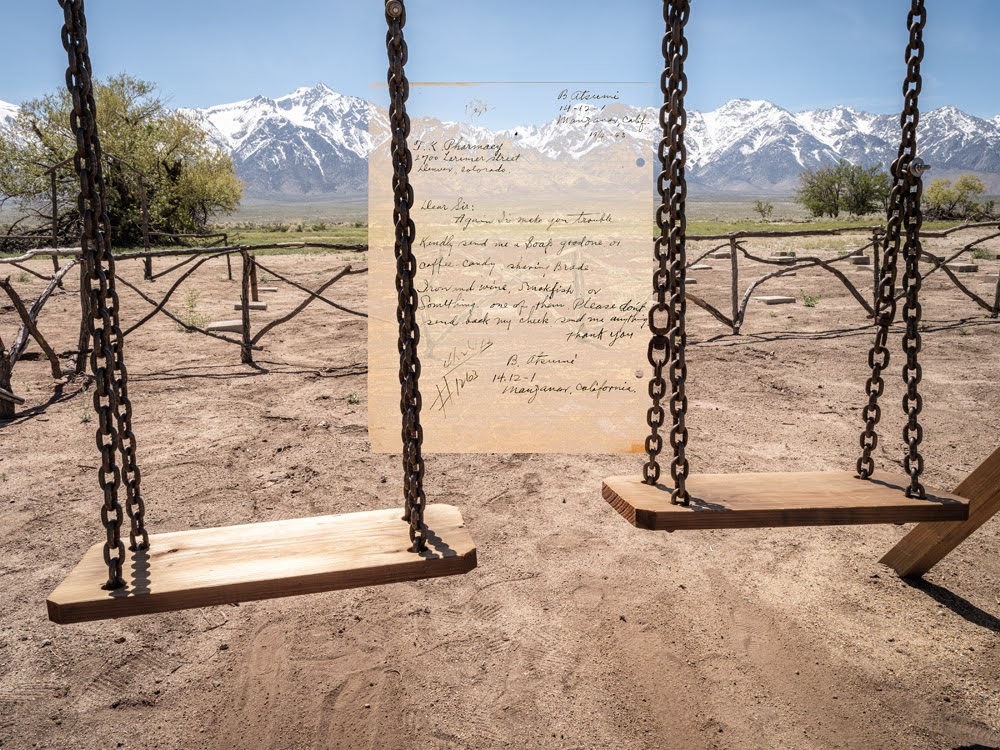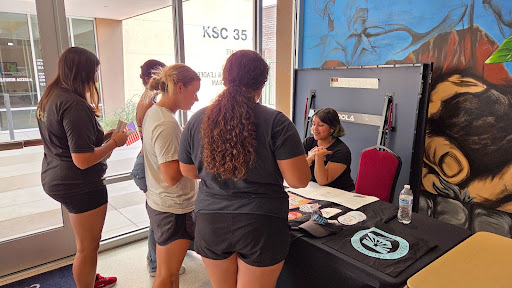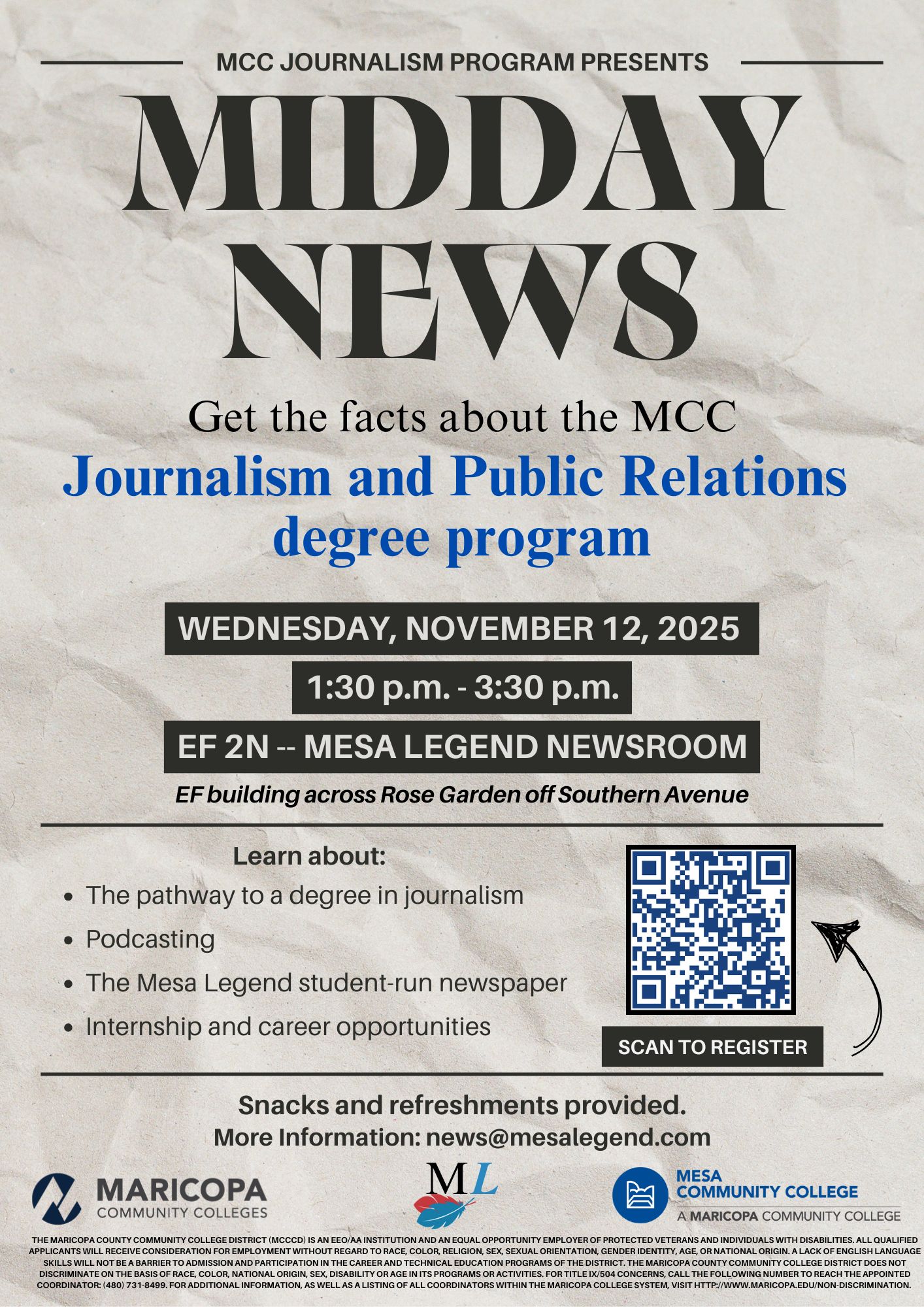MCC Urban Farmers seek sustainable future
Keith Whittemore
Mesa Legend
 Tucked away in the southeast corner of campus, the MCC Urban Farmers Club is starting a green revolution. Spurred on by the shortcomings of traditional agriculture, the club, in conjunction with the urban agriculture program, has been working to change the way the community, and the world, eats. “In Phoenix alone, there’s a lot of open space — lots that have never been used or where buildings have been taken down, and they’re there for the taking,” said Peter Conden, MCC professor of urban agriculture and the founder of the club. According to Conden, even the small cost of a community garden plot can yield tremendous benefits. “The benefit to growing your own food is that you grow your own food… I heard one person say it’s like growing your own money,” he added. “A packet of seeds might cost $1.50, but you can get 50 tomato plants out of that versus buying a pound of tomatoes.”
Tucked away in the southeast corner of campus, the MCC Urban Farmers Club is starting a green revolution. Spurred on by the shortcomings of traditional agriculture, the club, in conjunction with the urban agriculture program, has been working to change the way the community, and the world, eats. “In Phoenix alone, there’s a lot of open space — lots that have never been used or where buildings have been taken down, and they’re there for the taking,” said Peter Conden, MCC professor of urban agriculture and the founder of the club. According to Conden, even the small cost of a community garden plot can yield tremendous benefits. “The benefit to growing your own food is that you grow your own food… I heard one person say it’s like growing your own money,” he added. “A packet of seeds might cost $1.50, but you can get 50 tomato plants out of that versus buying a pound of tomatoes.”

Photos by Tania Ritco
Christee Rothbard, the greenhouse manager for MCC’s garden, agreed, noting the impact local food production can have especially for the poor. “With food prices going up, (and) good food not being available in a lot of communities — they can grow it by themselves, they can grow vegetables in their backyards,” she said. To help foster knowledge of urban agriculture in low-income areas, the MCC urban agriculture program used part of an $81,600 EPA grant to build aquaponics systems and develop corresponding curricula to teach elementary science and other subjects.
“The grant paid for buying aquaponic systems — two systems here at MCC, and two systems at the Brooks Community School in south Phoenix. It also paid for curriculum development for K-8 to write STEM curricula based on aquaponics,” Conden said. “We also have to give 25 percent of the grant money back to schools in the form of sub-grants to purchase in-classroom aquaponics systems,” he added. The club also helps local charities directly. “Whatever we grow on our urban farm, if we don’t sell it at the farmers’ market, we give it to the local food banks,” Conden said. “Giving away food just gives you a great feeling.”
 Public health is also a major concern for Conden and the club. According to Conden, epidemics such as childhood obesity, diabetes, and malnutrition can all be linked back to poor eating habits. The solution, he said, is to grow food at home. “By teaching people how to grow their own food, and how to cook it and eat it, we can change the world, and solve a lot of problems that shouldn’t be problems at all,” Conden said. In addition to bettering the community’s health and wealth, growing food locally can also help the environment. “Most people who want to grow their own food have a tie to the Earth. That means they want to fix it, to make it better and healthier. Being in Phoenix, where water is expensive, people who grow here tend to be more water-conscious, environmentally-conscious, and socially-conscious,” Conden said. About the future, Conden expressed optimism. “I want this to be my legacy,” he said. “If we start (helping people grow their own food), we can change the world.”
Public health is also a major concern for Conden and the club. According to Conden, epidemics such as childhood obesity, diabetes, and malnutrition can all be linked back to poor eating habits. The solution, he said, is to grow food at home. “By teaching people how to grow their own food, and how to cook it and eat it, we can change the world, and solve a lot of problems that shouldn’t be problems at all,” Conden said. In addition to bettering the community’s health and wealth, growing food locally can also help the environment. “Most people who want to grow their own food have a tie to the Earth. That means they want to fix it, to make it better and healthier. Being in Phoenix, where water is expensive, people who grow here tend to be more water-conscious, environmentally-conscious, and socially-conscious,” Conden said. About the future, Conden expressed optimism. “I want this to be my legacy,” he said. “If we start (helping people grow their own food), we can change the world.”
